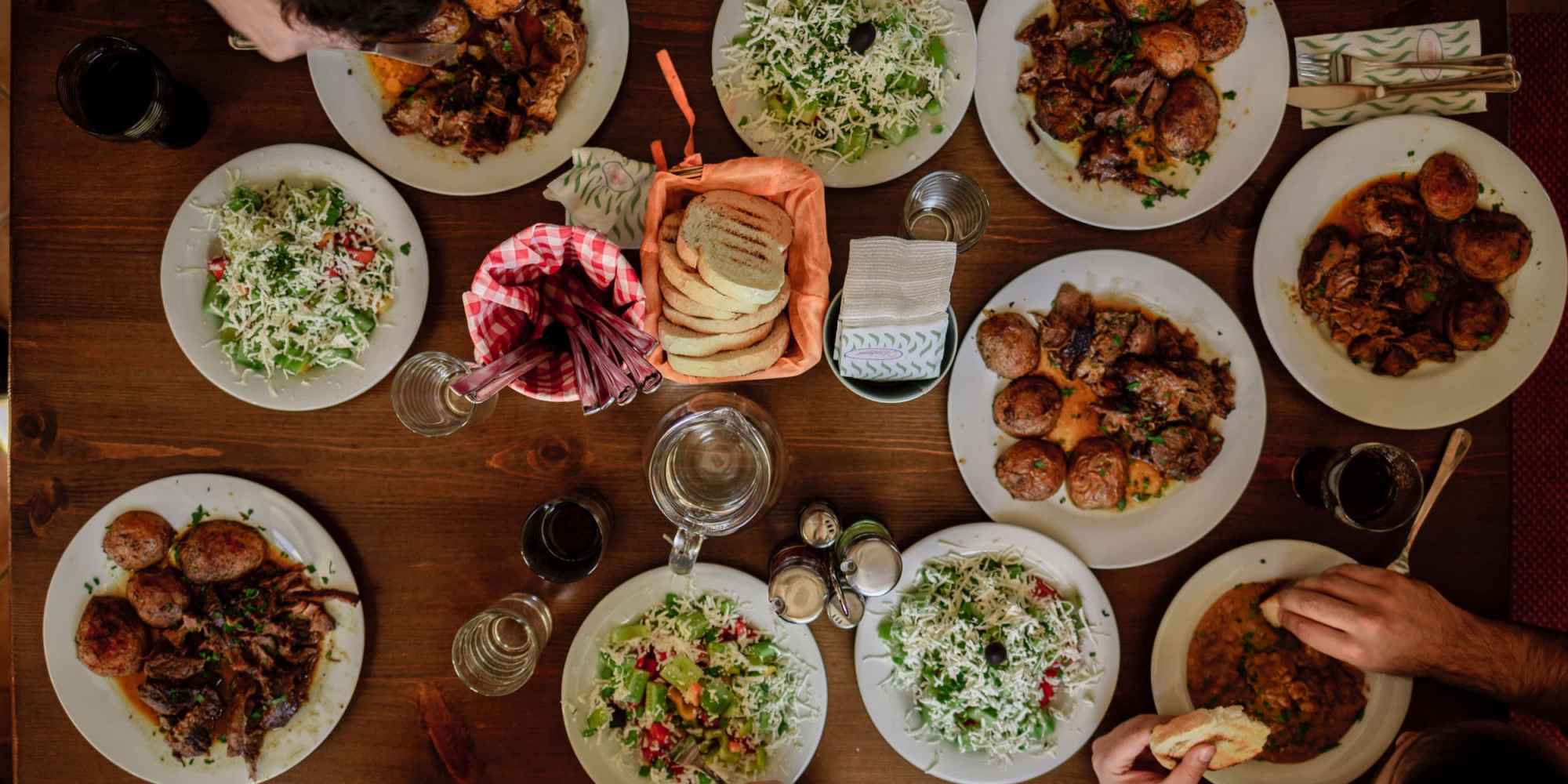Eating out is a quintessential part of any European adventure, and as a travel writer with millions of readers, I've dined my way through countless bistros, trattorias, and tavernas. From Michelin-starred restaurants to street food stalls, Europe has something to offer every palate and budget. However, there are a few dos and don'ts to keep in mind when eating out in Europe to ensure that you have a positive and enjoyable dining experience.
👍 Do: Embrace the Local Cuisine
One of the biggest dos of eating out in Europe is trying new things. Europe is home to a diverse range of cuisines and food traditions, and it's a great opportunity to try new flavors and dishes. Don't be afraid to step out of your comfort zone and try something new. You may discover a new favorite dish or ingredient.
When in Spain, delight in a plate of tapas or indulge in some paella. In Italy, let the richness of a classic pasta dish like carbonara or a hearty osso buco sweep you away. Embrace the bold flavors of Hungarian goulash or the comforting warmth of a Polish pierogi. The culinary possibilities are endless, and your taste buds will thank you for it.
👎 Don't: Limit Yourself to Familiar Foods
It's easy to stick with familiar favorites when traveling, but part of the thrill of exploring new destinations is discovering unique flavors and local specialties. Avoid the temptation to order the same dishes you can find at home, and instead, immerse yourself in the culinary traditions of the region.
👍 Do: Be Mindful of Local Customs and Etiquette
Different countries and regions have their own dining customs and etiquette, and it's important to be respectful of these traditions. For example, in some places it's customary to tip, while in others it's not. It's also a good idea to be aware of local food allergies and sensitivities, and to communicate any dietary restrictions to your server.
In France, it's polite to place your bread on the table rather than on your plate, while in Germany, it's less popular to cut your potatoes with a knife - smash or mash them with your fork to let more gravy into them. Take some time to research the dining etiquette of the country you're visiting, and you'll be well-prepared for a culturally respectful dining experience.
👎 Don't: Be Overly Picky or Demanding
In some places, especially in smaller towns or rural areas, the menu may be limited or the ingredients may not be exactly what you're used to. It's important to be open-minded and flexible when eating out in Europe, and to remember that you're trying new things and experiencing new cultures.
Rather than rejecting a dish because it contains an unfamiliar ingredient, consider giving it a chance. You might be surprised by the delicious combinations and flavors you'll encounter. Keep in mind that local chefs take pride in their creations, and being open to trying their specialties is a sign of respect.
👍 Do: Engage with the Locals
Dining in Europe is often a social affair, and striking up a conversation with locals can lead to some memorable moments and fascinating insights into the local culture. Whether you're dining at a bustling tapas bar in Barcelona or a cozy taverna in Greece, don't hesitate to engage with those around you. You may even receive some insider tips on other culinary gems to explore.
👎 Don't: Rush Through Your Meal
In many European countries, dining is meant to be a leisurely experience, savored and enjoyed with friends and family. It's customary to linger over a meal and drink, and it may be seen as rude to order a drink and then leave. Take your time, soak in the atmosphere, and appreciate the opportunity to relax and enjoy your surroundings. Savor each bite and sip, and remember that eating out in Europe is as much about the experience as it is about the food.
👍 Do: Learn Some Local Language
While many Europeans speak English, especially in larger cities and tourist areas, it's always a good idea to learn a few key phrases in the local language. This will not only make your dining experience smoother but also show respect and appreciation for the local culture. Even just knowing how to say "please," "thank you," and "delicious" can go a long way in creating a positive rapport with your server and fellow diners.
👎 Don't: Expect the Same Dining Hours as at Home
In some European countries, dining hours may differ significantly from what you're accustomed to back home. For example, in Spain, lunch is typically eaten between 2 pm and 4 pm, with dinner not starting until 9 pm or even later. In contrast, Northern European countries tend to have earlier dining hours. Be prepared to adjust your meal times to align with local customs, and avoid showing frustration if your preferred dining time isn't available.
👍 Do: Ask for Recommendations
If you're unsure of what to order, don't hesitate to ask your server or a local for recommendations. Most people are more than happy to share their favorite dishes or guide you toward regional specialties. By trusting the locals' expertise, you're likely to discover some truly delectable dishes that you might have otherwise overlooked.
👎 Don't: Assume That Chain Restaurants Offer an Authentic Experience
While international chain restaurants can provide a sense of familiarity and comfort, they rarely offer the same caliber of culinary experience as local establishments. Instead of defaulting to a familiar chain, venture out and explore the local dining scene. Not only will you be supporting local businesses, but you're also more likely to encounter unique, authentic dishes that capture the essence of the region.
👨🍳 Bon Appétit!
In conclusion, eating out in Europe can be a fantastic way to experience the local culture and cuisine. By embracing new flavors, respecting local customs and etiquette, and engaging with the locals, you'll create cherished memories and enjoy a truly authentic European dining experience. So, as you embark on your European culinary adventure, keep these dos and don'ts in mind, and bon appétit!

